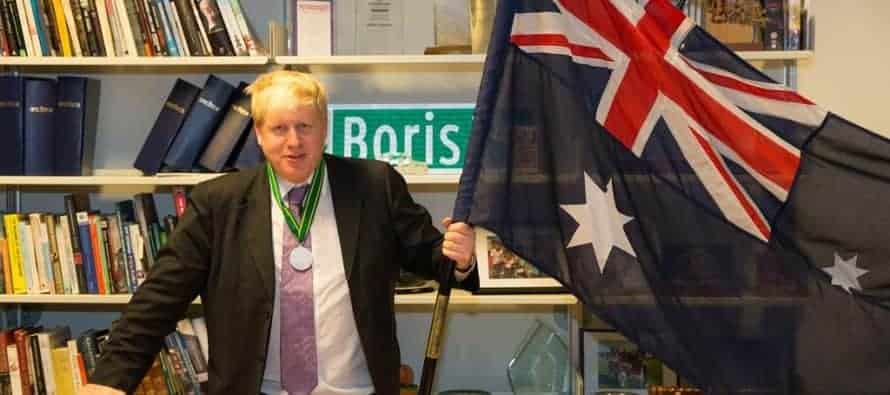Australians should be granted a special status to live and work in the United Kingdom, urges a new report that has the backing of London Mayor, Boris Johnson.
The report by think-tank The Commonwealth Exchange, released on Monday, proposes bilateral mobility zones between the UK and other Commonwealth nations including Canada, New Zealand and Australia.
In the foreword to the How to Solve a Problem Like a Visa report, the London mayor supports the notion that the UK needs to place renewed focus on its Commonwealth cousins when it comes to reviewing immigration policy.
“The first place to start is with the Commonwealth,” Johnson writes. “It seems that almost all parts of the Commonwealth are brimming with a new energy and optimism at precisely the time that the European Union is struggling.”
The report comes in response to the fall in working visitors to the UK from countries such as Australia over the past decade, due in part to a tightening of Britain’s work visa rules for non-European Union citizens, which Johnson has argued has had a particularly adverse impact on the London economy.
The report proposes a “bilateral mobility zone” agreement between Australia and Britain, an idea mooted last year by Johnson and modelled on the existing Trans-Tasman Travel Arrangement (TTTA) between Australia and New Zealand.
Under the proposal, Aussies would be eligible for a free visa to live and work in the UK. The arrangement would be reciprocal for British citizens.
“The TTTA should be seen as a starting point for the UK to build a flexible, fair, reasonable and reciprocal regime,” the report says.
“New Zealand’s two-year wait for welfare provision and five-year wait for eligibility for citizenship appear sensible ideas that the UK may wish to replicate.”
The report also proposes a new Commonwealth concession for UK business visas leading ultimately to a Commonwealth-wide business visa programme based on the ASEAN Business Travel Card.
In addition, the report recommends extending the UK’s Youth Mobility visa programme (which replaced the more familiar 2-year working visa) to more Commonwealth nations.
Tim Hewish, the author of the report, concedes that there may be some concern expressed from Australia about an imbalance arising in the flow of travellers to and from Britain, given such an open system and the relatively high population of the UK compared to Down Under. He also predicts hesitation in light of the highly charged political climate in Australia surrounding asylum seekers. But, he argues, concerns would be overcome by the shared laws and cultures of the countries.
“Extra Brits would never be seen as alien,” Hewish says.
“Nor would Aussies or Kiwis in Britain. The issue may come down to political climates and the resulting political will.
“It would certainly allow a greater flourishing of our common unity.
“The UK, Australia, Canada and New Zealand share the same head of state, the same language and the same common-law legal system. Critically, they are all highly economically developed democracies and there is also a distinct common culture and familial bond between them.
“Taken together this has led some to ask why policies of free movement don’t already exist.”
In his foreword, Boris Johnson says the report is the beginning of a long-overdue discussion about how the UK engages with citizens of the greater Commonwealth.
“In 2013, I visited Australia and was reminded of the myriad enduring bonds between ‘the English-speaking peoples’, to use Churchill’s phrase,” writes Johnson
“As we reconsider Britain’s place in the world, I want us to reconsider how we engage with Commonwealth peoples,” he says.
Johnson sparked vigorous debate in August last year when he advocated a free labour mobility zone to allow Australians the right to work freely Britain. He was inspired by the plight of Sally Roycroft, an Australian teacher who was required to return home after her UK visa expired.
Read Sally’s story, in her own words: Why I asked Boris Johnson to improve Aussie work rights in the UK
Also see: ‘How to Solve a Problem Like a Visa’ on the Commonwealth Exchange website
IMAGE: Boris Johnson earlier this year upon being named Honorary Australian of the Year in the UK












